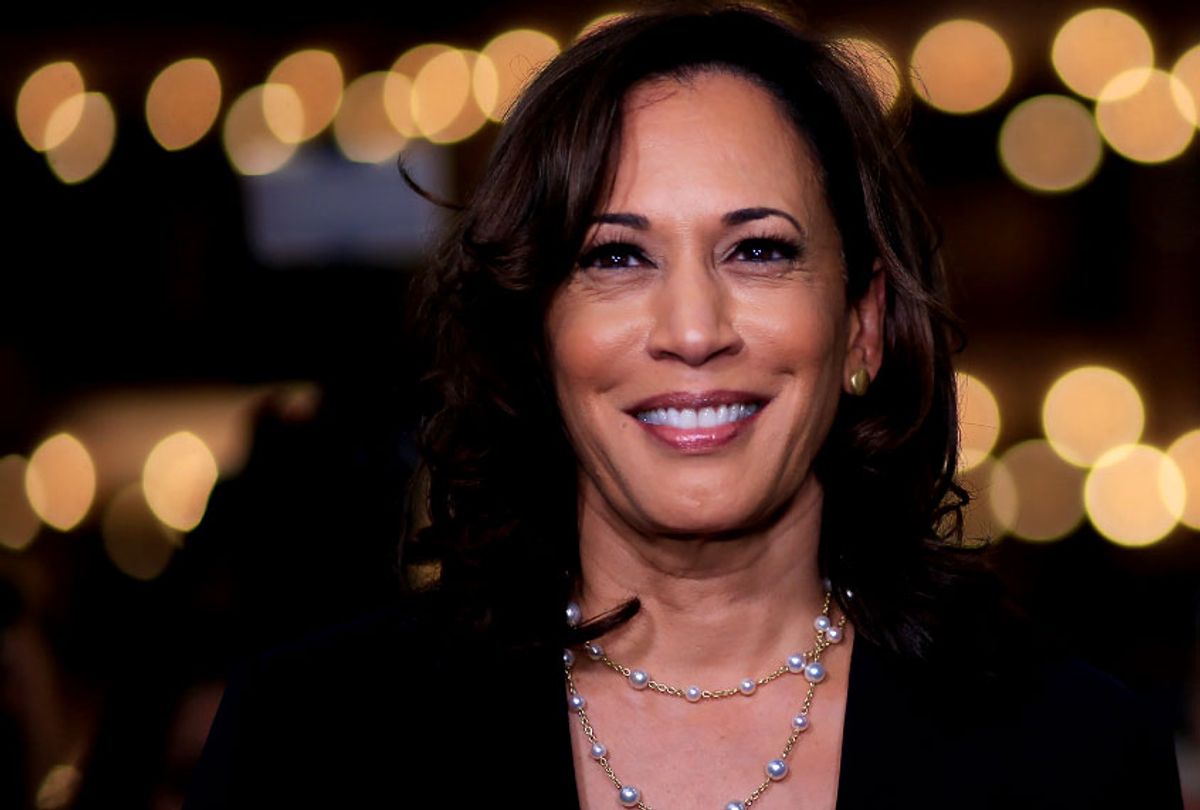Presumptive Democratic nominee Joe Biden has named Sen. Kamala Harris, D-Calif., as his running mate, marking the first time a woman of color has appeared on a major-party ticket.
"I've decided that Kamala Harris is the best person to help me take this fight to Donald Trump and Mike Pence and then to lead this nation starting in January 2021," Biden said in a Tuesday email announcing the decision.
Harris, the former attorney general of California, challenged Biden for the top of the ticket last year. She was widely considered a front-runner for the vice presidential slot, which Biden previously said would go to a woman.
Harris' experience as California's top prosecutor, combined with four years in the Senate, made her among the most experienced potential picks. Indeed, former President Barack Obama, who served two terms in the White House alongside Biden, touted the senator's credentials shortly after her nomination was announced.
"I've known Senator Harris for a long time. She is more than prepared for the job," Obama said. "She's spent her career defending our Constitution and fighting for folks who need a fair shake."
Harris will be the first Black woman and first woman of South Asian descent to appear on a major-party presidential ticket. Her nomination carries added weight amid a national reckoning on race sparked by the deaths of George Floyd and Breonna Taylor. Harris herself challenged Biden's history on the racially-charged issue of busing during a primary debate last summer.
"There was a little girl in California who was part of the second class to integrate her public schools, and she was bused to school every day," she said onstage as she turned to speak directly to Biden. "And that little girl was me."
The attack caught Biden off-guard after Harris worked closely with his late son, Beau. While the face-off made a big splash, Harris failed to ride the momentum. She suspended her presidential campaign in December, weeks before the first nominating contest was held in Iowa.
Though Harris styled herself a "progressive prosecutor" who fought for criminal justice reform, her presidential bid was plagued by criticism from the party's left wing. Those criticisms may return, though Harris emerged as a key force behind racial justice legislation in late May.
Still, Harris' record on race and criminal justice will be pitted against that of President Donald Trump. Though he signed a bipartisan criminal justice reform bill in 2018 — which Harris supported — Trump was considered "a racist" by a majority of American voters in a 2019 Quinnipiac poll.
Harris drew upwards of 20,000 people to her presidential campaign launch last January in Oakland, Calif. Though she struggled to translate that excitement into strong poll numbers, Harris' presidential ambitions remain bright. Biden, who if elected would become the oldest American sworn in as president at 78 years old, has said his pick would have to be ready to assume the Oval Office on "a moment's notice."
"It's overdue. It's tremendous," Angela Rye, a Democratic political strategist and former executive director for the Congressional Black Caucus, told the Los Angeles Times of the nomination. "Kamala is not a stranger to making history, so it's poetic justice that she'd be making history here."
"Hopefully, it signifies a tremendous shift in the Democratic Party by finally recognizing how important Black people, and most specifically Black women, are to the base," she added. "We don't just mobilize the Black community, but we mobilize the party overall."
Harris, 55, is the daughter of two immigrants: Her mother was an Indian-born oncologist, and her Jamaican father was a prominent economist at Stanford University. She attended a historically Black college, Howard University.



Shares